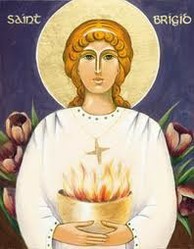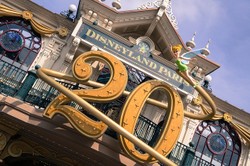There is no holiday in the United Kingdom like either Independence Day in the United States or Canada Day, but people who live in the United Kingdom can be very patriotic. Sometimes it is an event involving the Royal Family that needs to be celebrated. The Queen does have an anniversary of her coronation every year, and once a year she does have a birthday. And now, with new members of the Royal Family being born, and some members of the family are still eligible for marriage, there is always an excuse to celebrate.
The introduction image was found in public domain at WPClipart.













 Multivariable Calculus: Gradient, Divergence, and Curlon 12/19/2025
Multivariable Calculus: Gradient, Divergence, and Curlon 12/19/2025
 UAPs, Formerly UFOs, If They Are Real How Can We Explain Their Arrival to Earth?on 12/18/2025
UAPs, Formerly UFOs, If They Are Real How Can We Explain Their Arrival to Earth?on 12/18/2025
 Polar Coordinate Systemon 12/16/2025
Polar Coordinate Systemon 12/16/2025
 Aurora Can Disrupt Electrical Devices And Even the Grid?on 12/15/2025
Aurora Can Disrupt Electrical Devices And Even the Grid?on 12/15/2025



Comments
There is no current meaning of this in the United States. At the time of the American Revolution there was a meaning associated with a group who remained loyal to the king, but that is now confined to history books.
In the American context what is meant by the term loyalist? Over here in the British Isles the term loyalist is used in Northern Ireland to denote the militant political arm of Protestantism. In the UK loyalists have political allies in the far right, who are becoming a problem.
blackspanielgallery, Thank you for the suggestions and the product line. Is the equivalent on this side of the pond Loyalist celebrations?
I have a strong sense of identity derived from the communities to which I belong. I see myself therefore as British and English. Take an example, if any member of my family had done wrong, I would not stop feeling for them and loving them, but I would acknowledge the wrong that they had done. Similarly with Britain. We have got up to major imperial misdemeanours over the years, but I still have a bond with the people and I will seek to further their interests and well being.
I think that the truth is that no nation is entirely free of guilt, but no nation is unreservedly guilty. As I said in my article on England and Scotland, there have been no goodies on either side. We have both been baddies, but there have been good things in the history of these nations as well, and we must not over-concentrate on the negatives.
A very interesting, practical post and I am glad that you celebrate your nationality. But respectfully, .... I don't. Ever.
I was born in England as were my parents and I feel nothing for England. I feel even less for Britain. I would never celebrate anything British.
I am thoroughly ashamed of the British Empire and what was done to subjugate nations all over the world in the name of "protection" and what was in actual fact, financial, religious, military and political domination and plundering. If Britain did today what they did then, they would be subject to a war crimes tribunal and have a UN order against them. I believe that nations have a right to govern themselves. The world went to war against Hitler when he marched into nations. The Brits got away with it. I would be happy if Britain were a republic with an elected president.
I feel nothing for the royal family. I would not leave the house to see them if they were walking by. In fact, I have never seen any of them. I have no wish to. I wish princess Charlotte well but I have no interest in her same as most Brits have not. She is merely another one of them for us to keep and pay for. As a historian, I know that the royals obtained the throne through murder, rape, torture, stealing and cruelty. The present monarch is descended from a German family who hated Britain so much when they inherited the throne that they refused to learn English. Prince Philip is a Greek prince so Prince Charles, the future monarch if we are unfortunate enough to still have a monarchy then, will be a half Greek, British king of German and Danish descent. Where does Britishness come in?
My views on Magna Carta are well known! It was never intended as a pathway for democracy ; it was a peace treaty between the King and the Church and Barons. If they had any inkling it would be thought of as democratic, they would have changed it instantly and in any case it was repealed and invalidated within 8 weeks by King John. Are we to celebrate something which for example, in one clause states that anyone who dies owing money to a Jew doesn't have to repay that debt because it is only to a Jew? Is that document worthy of a celebration? I would suggest not.
Thanks to each of you for the comments. To Frankbeswick, I once wrote a piece and commented on England, and got a reminder that there were other parts of the U. K. I believe there are some who think of themselves as part of a whole, and some who think of themselves as from only a part. You have explained this quite well. And, I have also heard the monarchy is in and is out of favor, depending on the person. I am learning about England from your articles, and I would recommend them to many others who want an opinion from the source, a person actually there. Thanks again.
In recent years there has been an upsurge of more local identities. While the British still display Union Jack symbols on occasion, the national flags of the four nations tend to be on display. England's flag is the cross of St George, which we wave at international football matches. The anthem God Save the Queen is often now played only at national occasions, or when the British team is playing, but there is a tendency to play the anthems for the four nations. England has no official anthem, but many people like to play Jerusalem at England international matches. "And did those feet in ancient time, walk upon England's mountains green."
Even the southern county of Cornwall now has its own flag in recognition that the Cornish, while in England, do not see themselves as really English. They were a Celtic kingdom absorbed into England in the tenth century.
The issue is whether local patriotism to the four nations will supplant patriotism to the wider UK of which they are a part. I see myself as equally British and English, but also in my identity is an awareness that I have strong roots in Ireland. But I worry that my sense of being equally English and British makes me part of a dying breed. My second son sees himself as primarily English and has only a limited sense of a British identity. My eldest son feels the same as I do.
I must say that I have a strong feeling for each of the four nations that make up the British Isles, but I wonder how representative I am.
The role of the monarch in national patriotism is contentious. Some regard her as a patriotic symbol, but there are people who are anti-monarchy in this country, though republican sympathies are muted and generally not really hostile.
What fun patriotic items for our friends in the UK. I especially like the hat! On one of our recent cruises, I chatted with a lady Brit who said their family much admired the patriotism of Americans. Sadly, it is on the wane in certain segments of our society. Not all, thankfully!